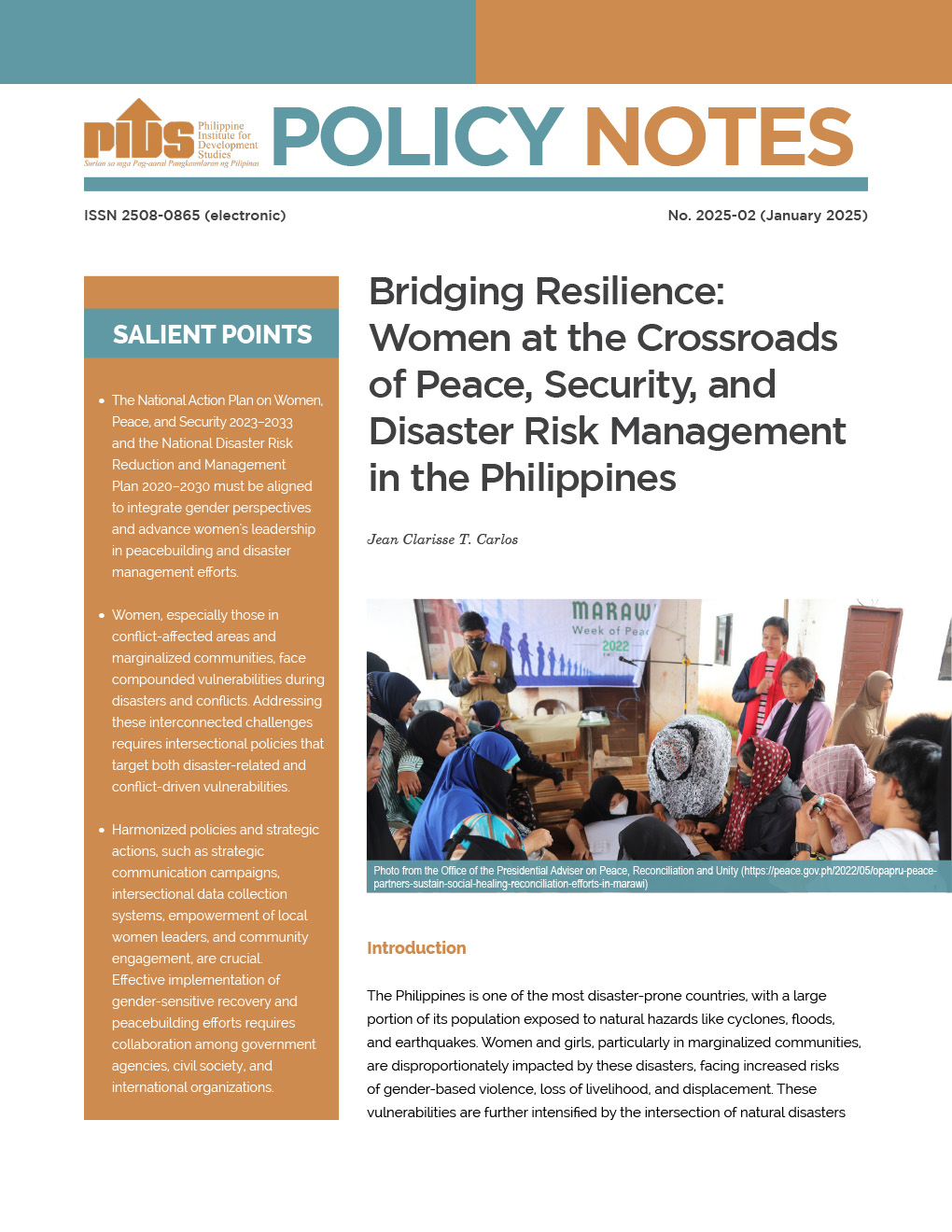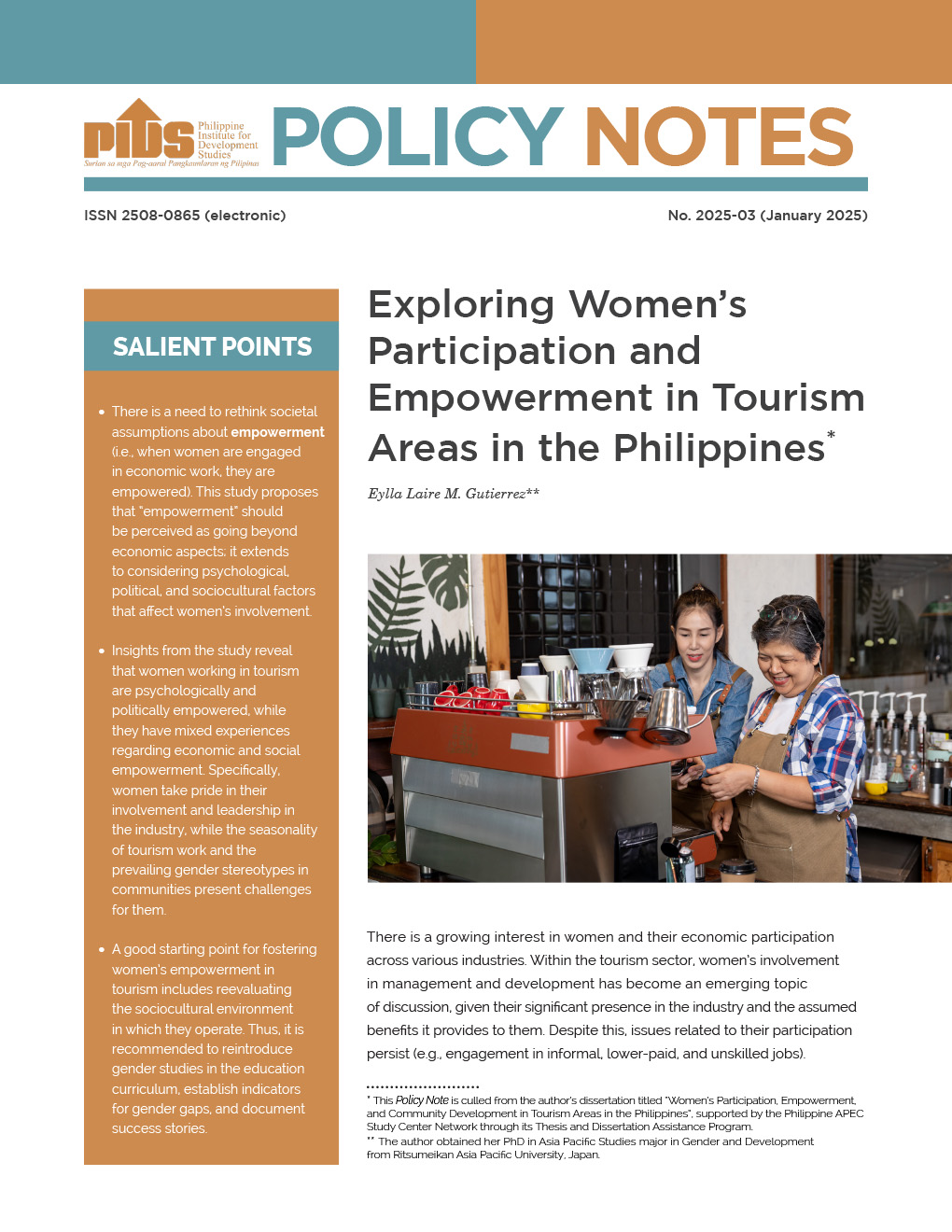Women-led micro, small, and medium enterprises (MSMEs) could benefit greatly from cross-border trade and e-commerce participation, according to a Policy Note published by the Philippine Institute for Development Studies (PIDS).
In the Policy Note titled “Empowering women-led MSMEs to engage in cross-border e-commerce trade through RCEP [Regional Comprehensive Economic Partnership],” researchers led by Jean Clarisse T. Carlos, a project evaluation officer at the Philippine APEC Study Center Network, said the government must take steps to ensure women are able to benefit from these.
The authors said there is a need to disaggregate data on women-led MSMEs or WoMSMEs as well as strengthen government programs to promote e-commerce adoption and greater participation in regional trade such as through RCEP.
“The implications for trade policy with specific regard to women and e-commerce are important given the growing share of female entrepreneurs in the MSME sector in the Philippines and the crucial role they play in the Philippines’ efforts to recover from the crisis through the RCEP,” the authors said.
The researchers’ specific recommendations included the need to generate gender-specific data on the cross-border e-commerce participation of Philippine MSMEs, which could be crucial in targeting support.
Disaggregated data could help identify specific challenges and barriers to e-commerce adoption as well as policy interventions that could be done by the government.
The authors also said there is a need to conduct a nationwide survey of WoMSMEs and their e-commerce adoption and likelihood of participating in e-commerce and cross-border trade through RCEP.
These data would also help the government raise the level of awareness of WoMSMEs on RCEP and other ways to tap the regional market or participate in cross-border trade.
“This may be addressed through the inclusion of targeted information drives, awareness-raising activities, and capacity-building programs for WoMSMEs in the implementation of development blueprints or strategies, RCEP, as well as other future free trade agreements,” the authors said.
Based on the data, the authors said 43.62 percent of WoMSMEs established their businesses at the height of the Covid-19 pandemic in 2020. Some 30.86 percent of women also put up businesses in the second pandemic year, 2021.
The pandemic was also the most cited reason for adopting e-commerce followed by higher profit, ease in communication, growing popularity of e-commerce platforms, and wider customer reach.
E-commerce adoption has also enhanced WoMSMEs performance through increased business/product popularity; higher profits; and easier communication with clients.
PIDS study cites benefits of women-led MSMEs in cross-border trade, e-commerce participation












